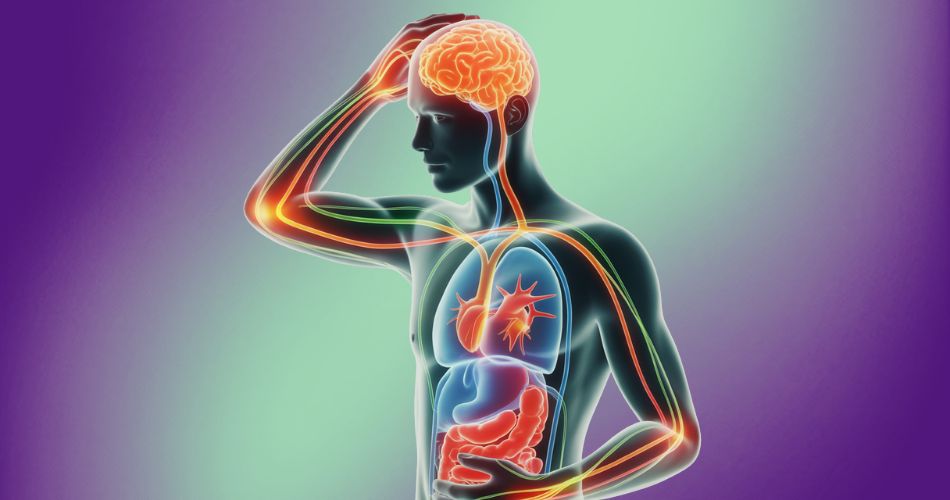
Doctors have long treated inflammation as the body’s short-term defense system — a swollen ankle, a sore throat, a red rash. But a wave of new research is forcing a dramatic rethink: chronic, low-grade inflammation may be the silent engine behind today’s most devastating diseases.
In just the past two years, studies have linked misfiring immune pathways to Alzheimer’s progression, mapped how gut bacteria trigger arthritis, and shown that a week of poor sleep can literally reprogram your immune system. At the same time, scientists are developing blood tests with 99% accuracy for inflammatory bowel disease and exploring next-generation drugs that not only mute inflammation but also actively turn it off at its source.
The message is urgent: inflammation isn’t just a symptom anymore. It’s the story.
The Inflamed Brain: Why Alzheimer’s and Stress Look Like Immune Problems
One of the most striking discoveries comes from brain research. Immune cells called microglia, once thought to be benign housekeepers, are emerging as double agents. When overactivated, they release cascades of inflammatory chemicals that accelerate memory loss in Alzheimer’s and worsen stroke recovery.
At the center of this process is a molecular “switch” called the NLRP3 inflammasome. A 2025 Immunity study found that blocking NLRP3 not only reduced brain inflammation but actually restored microglia’s ability to clear toxic amyloid plaques — the hallmark of Alzheimer’s. Researchers are already exploring drugs that target this pathway.
And it isn’t just disease pathology. Stress and sleep deprivation are now recognized as direct inflammatory triggers. A 2022 study showed that sleep loss rewires immune stem cells, priming them to produce pro-inflammatory responses that persist even after recovery sleep. Translation: “catching up” on the weekend doesn’t undo the damage.
The Gut–Body Axis: When Digestion Drives Disease
The gut is being rapidly recast as the epicenter of chronic inflammation. New reviews describe arthritis not just as a joint disease but as part of a “gut-joint connection,” where shifts in gut bacteria and barrier function release inflammatory by-products into the bloodstream.
Other studies have gone further, pinpointing which microbes matter. In liver disease and heart failure, spikes in inflammatory bacteria, such as Enterococcus, and declines in protective groups, like Firmicutes, were consistent markers. On the other hand, beneficial bacteria such as Lactobacillus produce short-chain fatty acids that help calm inflammation and strengthen the intestinal wall.
This specificity is the game-changer: it’s no longer about vague “gut health” — it’s about measurable microbial patterns that may one day help doctors predict or even prevent disease.
New Tools: Diagnostics and Therapies on the Horizon
The most hopeful news may come from diagnostics. Traditional markers, such as CRP, are blunt instruments. However, in 2025, scientists validated a three-gene blood panel that distinguished IBD patients with 99% accuracy — a breakthrough that could potentially replace invasive colonoscopies in some cases.
On the therapy side, researchers are shifting from suppression to “resolution.” Instead of just quelling inflammation, the goal is to restore immune cells to a balanced state. A preclinical study of microRNA-199 demonstrated that it could inhibit excessive neutrophil migration by targeting a single enzyme, thereby taming inflammation without compromising overall immunity.
These precision strategies could open doors to safer, more targeted treatments for arthritis, diabetes, and even neurodegenerative disease.
Why This Matters Now
The thread running through these discoveries is clear: inflammation isn’t an afterthought. It’s the common denominator across diseases that claim millions of lives every year.
And for patients, the implications are immediate:
- Lifestyle is biology. Sleep, stress, and diet don’t just influence mood or energy — they reset the inflammatory tone of the body.
- New tests are coming. More accurate blood markers could soon help doctors catch inflammation-driven disease earlier and treat it more precisely.
- Therapies are evolving. Instead of blanket immunosuppressants, targeted drugs could bring inflammation under control without side effects that weaken defenses.
Conclusion
For decades, medicine has treated inflammation like background noise. But the latest science is clear: it’s the conductor of the orchestra. By reframing inflammation as the central driver of chronic disease, researchers are opening the door to earlier detection, more effective treatment, and a new model of preventive care.
For patients and providers alike, that makes inflammation not just a buzzword, but one of the most important health stories of our time.
Sources





